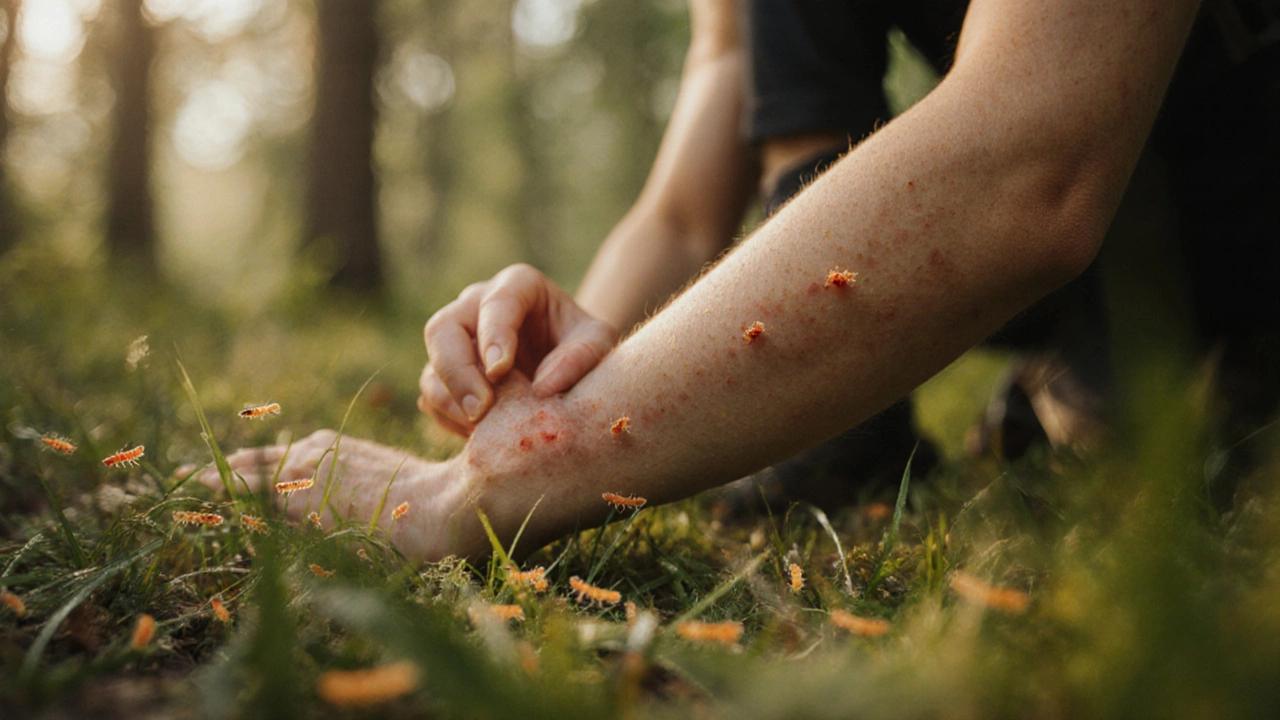Essential Oils for Chiggers: Natural Relief and Prevention
When it comes to tackling tiny pests without harsh chemicals, essential oils, concentrated plant extracts that capture fragrance and therapeutic properties. Also known as plant extracts, they are a go‑to for many looking for natural solutions.
Chiggers, microscopic mites that latch onto skin, bite, and cause intense itching. Also called harvest mites, they thrive in grassy areas and love warm, moist skin. Their bite leaves a red, irritated patch that can linger for days.
Because natural repellents, substances derived from nature that deter insects and mites rely on scent and skin‑friendly ingredients, essential oils fit right in. Essential oils encompass natural repellents and can double as soothing balms when a bite already occurs.
Top Oils That Keep Chiggers at Bay
Not all oils work the same. Tea tree oil, a powerful antiseptic with a fresh, camphoraceous aroma is a favorite. It not only repels chiggers but also calms the itching. Lavender oil, known for its calming scent and anti‑inflammatory properties, adds a pleasant smell while easing skin irritation. Eucalyptus and peppermint oils bring a cooling effect and strong scent that bugs hate.
Each oil brings a set of attributes: antimicrobial (tea tree), anti‑inflammatory (lavender), cooling (peppermint), and strong aroma (eucalyptus). When blended, they create a multi‑layered shield. Tea tree oil repels chiggers and soothes skin, making it a dual‑action hero for hikers and backyard loungers alike.
Application is easy but requires care. Dilute one part oil in at least ten parts carrier (like coconut or almond oil) before spreading on exposed skin. A quick spray can be made by mixing a few drops into water and a dash of witch hazel; spritz on clothing, socks, or the outer leg before heading into tall grass. For immediate bite relief, apply a tiny dab of the diluted blend directly to the irritated spot and massage gently.
Safety first: never slap undiluted oil on the skin. Perform a patch test on the inner forearm 24 hours before full use. If any redness or burning occurs, wash off and reduce the concentration. Children under two, pregnant women, and people with known oil sensitivities should consult a health professional before using.
Compared with synthetic insect repellents, essential oil blends are lighter on the wallet and the environment. You avoid petroleum‑based chemicals, and any leftover oil can be composted or repurposed. The trade‑off is that re‑application may be needed more often, especially after sweating or swimming.
Below you’ll find a curated collection of our latest guides that dive deeper into home comfort, furniture care, and practical DIY tips. Whether you’re looking for the perfect sofa, a sturdy bookshelf, or more natural health hacks, the articles ahead will give you clear, actionable advice.
What Smell Do Chiggers Hate? Natural and Effective Repellents Explained
Discover which scents repel chiggers, why they work, and how to apply natural or synthetic repellents safely for effective bite prevention.
More
